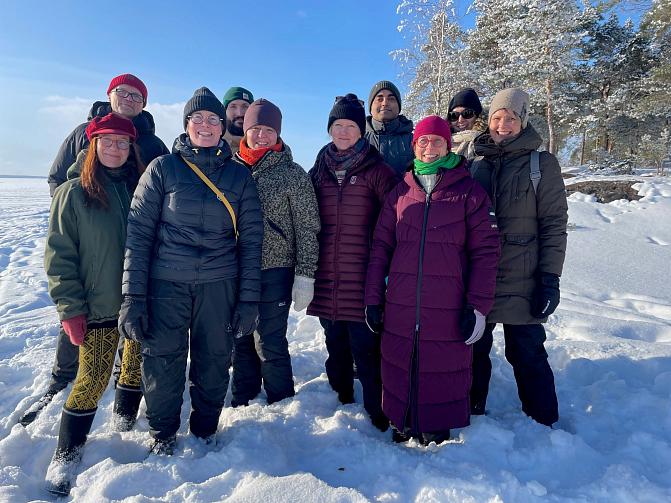Unfolding sense of water: care across boundaries
SoW

The rapid expansion of scientific knowledge on planetary environmental problems has not managed to prevent these from becoming crises. This has revealed the limits of the techno-scientific and political solutions in use. The societal challenges we face due to climate change, biodiversity loss and other environmental crises call for novel ways to understand ecological changes and mobilize legitimate actions. Complementary, more diverse and inclusive ways of knowing and means of communication including narratives, concepts and emotions are needed. These ways have been revealed to be effective for capturing and conveying deeper meanings, and for integrating tacit knowledge across different socio-economic and cultural groups. They can also foster individual and collective care for the environment and other humans, and give hope and meaning needed for action. Care for the environment emerges from a personal process based on a sense of place – a perception of belonging to and acting as part of one’s own surroundings through individual and shared feelings and emotions.
This is the starting point of the Sense of Water project. Water is an element that overcomes myriad physical, biological, societal and personal boundaries. Care for water offers vast opportunities for improved wellbeing of humans and the rest of nature. By integrating science and art, we engage people who are dependent on access to clean and sufficient amounts of water, or subject to hydrological changes or who live with, by and from water ecosystems, in order to compose the boundary concept of sense of water. We mobilise this concept in various hydrosocial communities to explore how the personal translates into collective care for water. We follow a transdisciplinary co-research approach that crosses different disciplines and utilise art-based methods to bridge different types of knowledges, emotions and practices and people together. We provide novel understanding of how ecological changes are experienced at the personal and interpersonal level through water in different geographical, social and cultural contexts; how knowledge, emotions and practices underpin perceptions of environmental change and consequent actions; and how to enhance new narratives and water literacy towards caring of and for water. We interlink findings and organise a Sense of Water exhibition and laboratory to cultivate the meanings of sense of water to achieve outcomes that can foster transformative changes.
The project is carried out by researchers in Natural Resources Institute, Finnish Environment Institute and Aalto University.

